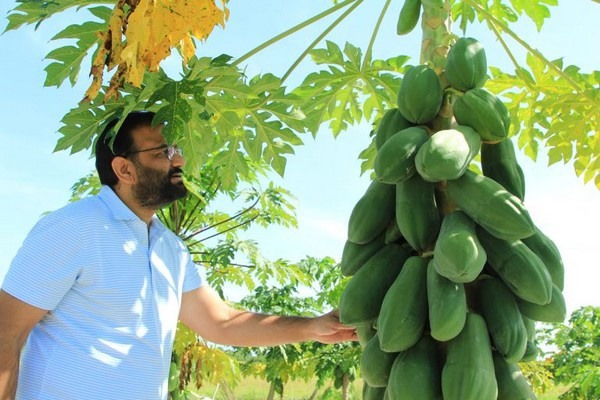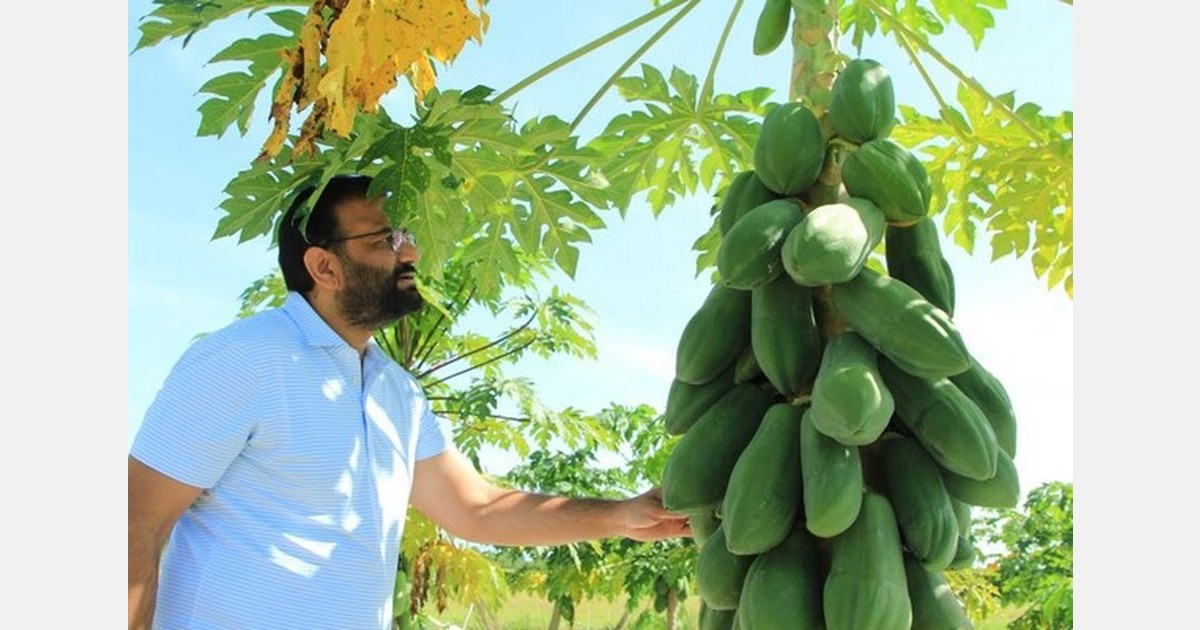Florida is one of the few regions in the continental United States with a subtropical climate capable of supporting exotic fruit crops such as mangoes, avocados, papayas, and dragon fruit. The state’s tropical fruit industry is valued at over US$137 million annually.
Growers face multiple challenges, including disease outbreaks such as papaya ringspot and laurel wilt, along with weather extremes and pest pressures. Research at the University of Florida Institute of Food and Agricultural Sciences (UF/IFAS) aims to provide solutions through breeding and genetics.
Jugpreet Singh, assistant professor at UF/IFAS Tropical Research and Education Center in Homestead, is leading projects to develop more resilient and productive tropical fruit varieties. Singh, who trained in horticultural breeding and genetics in both India and Florida, focuses on improving traits such as flavor, nutritional value, and post-harvest quality.
 © UF/IFAS Tropical Research and Education Center
© UF/IFAS Tropical Research and Education Center
“Tropical fruit breeding has a direct impact on everyday consumers,” Singh said. “When people bite into a mango or papaya, they care most about flavor and freshness. My goal is to make sure tropical fruits not only taste better but also carry more nutritional value, so consumers can enjoy fruits that are delicious, healthy, and last longer on their tables.”
Research combines traditional breeding methods with genetic tools such as DNA-based markers to identify promising cultivars. Current projects include work on mango and papaya improvement, the collection and preservation of dragon fruit germplasm, and efforts to address avocado laurel wilt and papaya ringspot virus. Singh’s team recently collaborated with growers to screen papaya seedlings for virus contamination, enabling early detection to support healthier plantings.
Future trials will include demonstration plots in Miami-Dade County to test the effect of organic compost on papaya production.
“Florida’s tropical fruit growers are battling major challenges, from papaya ringspot virus, mango anthracnose to laurel wilt in avocado, and also their adaptability to a constantly changing climate,” Singh said. “Through breeding and genetics, we’re working to deliver varieties that can withstand these threats and give growers more resilient crops while keeping production costs down.”
According to Singh, improving crop resilience can help reduce grower costs, while enhancing flavor and shelf life can improve consumer access to quality fruit. He also mentors graduate students, with an emphasis on genetics and data analysis for future crop improvement work.
For more information:
Lourdes Mederos
University of Florida IFAS
Email: [email protected]
www.blogs.ifas.ufl.edu

